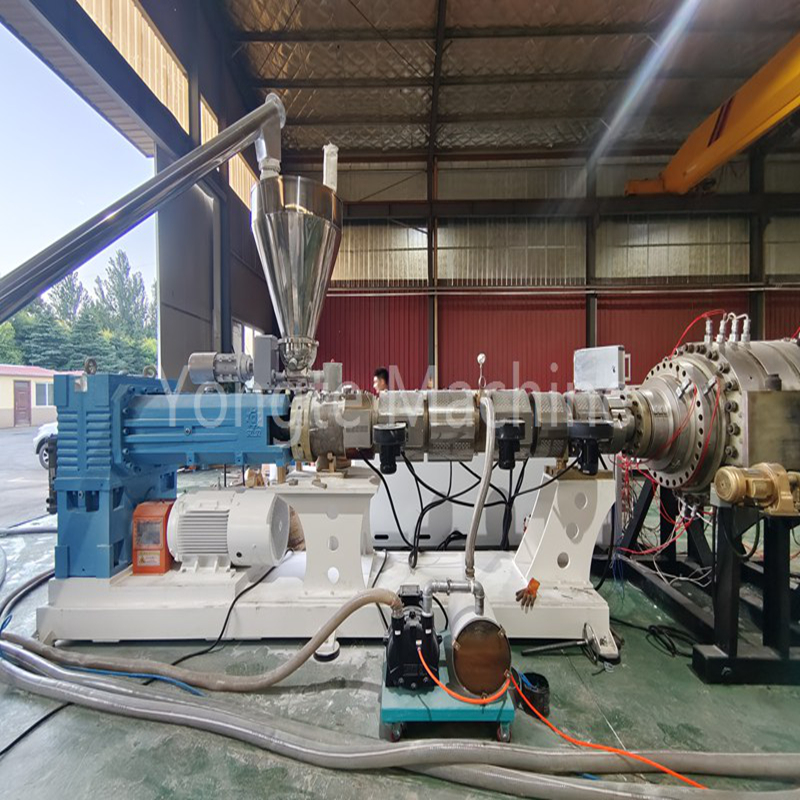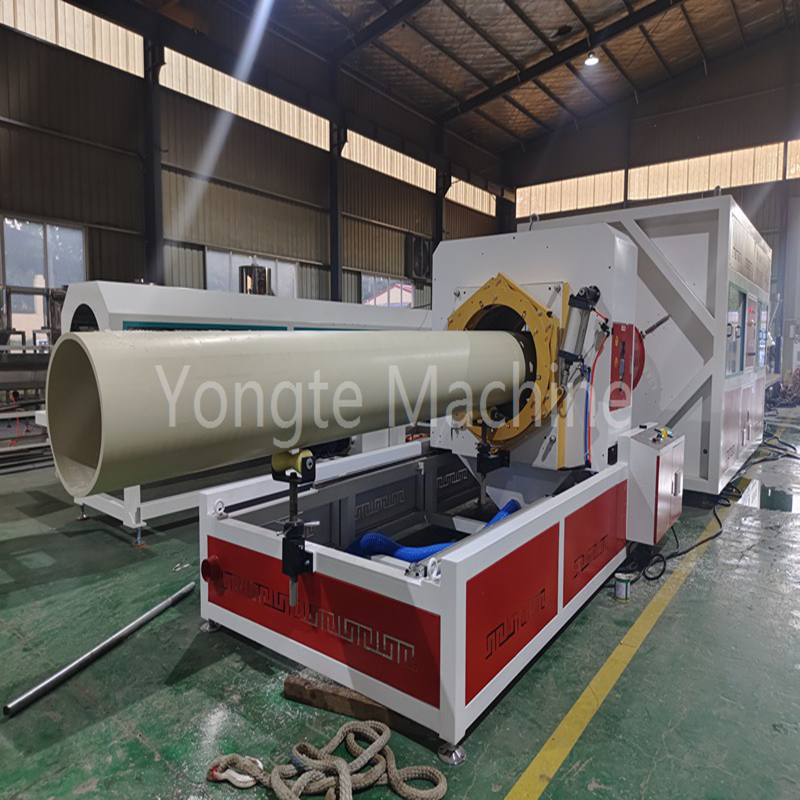Yongte Plastic Machinery Overcomes Production Bottlenecks in 600mm Diameter PVC Pipes
In recent years, the accelerated construction of infrastructure such as municipal drainage and water conservancy projects has driven a surge in market demand for large-diameter PVC pipes over 600mm. However, on the production side, many companies have long been plagued by several stubborn issues: uneven plasticization of raw materials, resulting in pipes that are "brittle in one section and soft in another"; inaccurate wall thickness control affecting the project's compressive strength; and frequent equipment maintenance slowing production progress. These pain points not only drive up production costs but also pose risks to project quality.
To address these common industry challenges, Yongte Plastic Machinery recently completed a comprehensive upgrade of its large-diameter PVC pipe production line. Through innovative optimization of core components, it has delivered a practical solution.

The most frustrating aspect of large-diameter pipe production is that "small problems become major issues when the size is increased." For example, uneven plasticization is a common problem. If the raw materials fail to fully melt in the screw, brittle spots will form on the pipe surface, making it extremely susceptible to pressure fracture after burial. However, if the materials are over-melted, the pipe will become too soft and unable to meet the required pressure resistance. Yongte, focusing on the core extrusion system of the production line, redesigned the screw structure and added a special "mixing section" to ensure that the raw materials are evenly blended, like repeatedly kneaded dough, completely solving the "undercooked" problem. The extruder is also equipped with a real-time sensing and control system that automatically monitors and adjusts temperature and feed rate, significantly reducing reliance on manpower and improving production stability.
Wall thickness variation is another problem that has left manufacturers at their wits' end. Uneven thickness in pipes not only complicates on-site assembly but also directly affects overall pressure resistance. The root cause is mainly mold concentricity deviation and uneven traction. Yongte has innovatively developed an "adjustable mold" that allows for real-time fine-tuning of key component positions without stopping the machine, effectively controlling the concentricity of the pipe's inner and outer diameters. The traction system has been upgraded to an intelligent servo drive, giving the equipment precise hands. Multiple traction claws work in tandem to ensure consistent speed and force, fundamentally preventing the tube from being stretched thin or warped.

Furthermore, frequent downtime for maintenance is a significant factor limiting production capacity. In traditional production lines, once a screw or mold problem arises, disassembly and repair often takes days, resulting in significant production losses. Yongte prioritized operational efficiency during the upgrade. Key components are treated with a special coating to significantly enhance wear resistance. Screws and molds are designed as quick-release modules, reducing replacement time from several days to just one or two days. The production line also incorporates predictive maintenance, enabling the equipment to perform self-inspections and provide early warning when component wear approaches critical levels. This facilitates maintenance scheduling and minimizes unplanned downtime.
Through these robust technological innovations, Yongte's plastic machinery has not only effectively improved the pressure resistance and installation compatibility of its tubes, but has also helped the company reduce scrap rates and downtime, achieving the multiple goals of improving quality, reducing costs, and increasing efficiency. Today, when infrastructure has an increasingly urgent demand for large-diameter, high-performance pipes, such technological innovations will undoubtedly inject new impetus into the high-quality development of the industry.